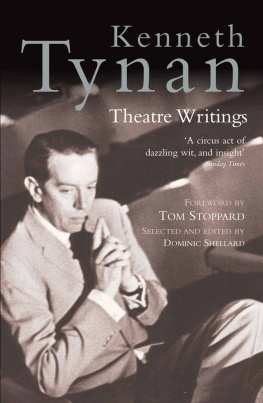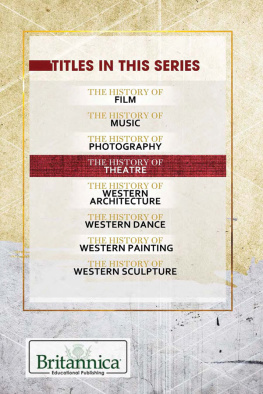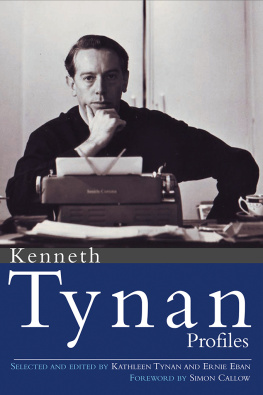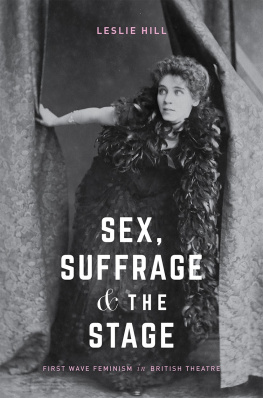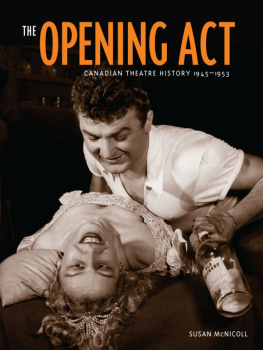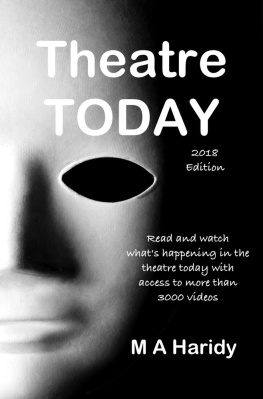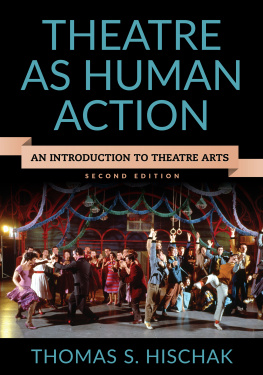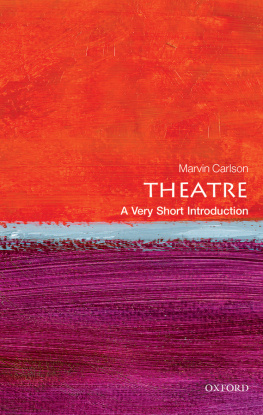Kenneth Tynan
THEATRE
WRITINGS
Selected and edited by
Dominic Shellard
Preface by Matthew Tynan
Foreword by Tom Stoppard

NICK HERN BOOKS
London
www.nickhernbooks.co.uk
Contents
For Leah, Ted and Grace
Acknowledgements
For permission to reprint extracts from copyright material the editor and publishers gratefully acknowledge the following:
Roxana Tynan, Matthew Tynan and Tracy Tynan; the estate of Laurence Olivier; the Observer, the Sunday Times and the Evening Standard.
Every effort has been made to contact all copyright holders. The publishers will be glad to make good in any future editions any errors or omissions brought to their attention.
Dominic Shellard would also like to thank the following for their invaluable support and advice: The Arts and Humanities Research Council, the British Library, the AHRC British Library Theatre Archive project (www.bl.uk/theatrearchive), the University of Sheffield, Marie-Claire Wyatt, Nick Hern, Matthew Tynan, Roxana Tynan, Margaret Flower and Jennie Flower.
Preface
Matthew Tynan
Appalled to discover that my fathers theatre writings had fallen out of print, Tracy, Roxana (my sisters) and I felt emboldened to right this wrong. I considered how often the national press pillages the works of Kenneth Tynan for choice quotes and prescient insight. I imagined the last few remaining editions of my fathers work, well thumbed and dog-eared, locked in the claws of a few covetous journalists. Why were the rest of us denied this resource? And what of the student of theatre? My immediate thought was to call Nick Hern publisher, theatre enthusiast and long standing family friend. I laid out my case: that these literary gems have been left to lie fallow for too long. I asked Nick if he would take on this challenge. Well, he said, scolding me gently, I already have.
As it turned out, he and my mother, Kathleen, had long ago hatched this very plan and he had merely been waiting for the moment to spring the book to life. That day has arrived and we the Tynan clan and lovers of the written word, owe him our gratitude. The pundits, the intellectual showboats, the purveyors of taste and cultural mores will now have to share this wealth: an inexhaustible treasure trove of bon mots and exquisite observation.
I am by no means a theatre aficionado (none of the Tynan children are) and yet it is as if I become one reading these scintillating reviews. His words instruct my own uneducated sensibilities, synching them to the heartbeat of a performance. He never forgot that the critic is always part of the show, dancing a playful pas de deux with his subject. He did not merely observe theatre, he transformed it. As Peter Brook said, The theatre has paid him its greatest compliment. After every first night, it is asking; What has Tynan said?
There is nothing unbiased about my fathers criticism. He was a scourge of the theatre and its most affectionate fan. His critical eye is microscopic and invasive, dissecting the anatomy of a performance and always trying to reveal the invisible machinery of talent. The force of his personality, like a bronzing agent, casts these fleeting moments of art into monuments.
A year before he died, my father sent a letter to his agent regarding the autobiography he intended to write; A major theme of the book, he wrote will be attempts as journalist, propagandist, and impresario to celebrate talent and make more room in the world for it to flourish. My father died before he could begin this task, but this collection will go a long way to fulfilling his final wish.
Kenneth Tynan was born to the theatre, it gave him his life, and in these selected writings he returns the favour.
*
The Tynan family would like to thank Dominic Shellard for his impeccable scholarship, his sense of history, and his excellent taste in these selections. And, of course, we are grateful to Tom Stoppard for being the most eloquent of champions.
Foreword
Tom Stoppard
Kenneth Tynan joined the Observer in 1954, the year I became a junior journalist, but I dont think I was much aware of him for a couple of years. When a friend told me about an amazing play at the Royal Court in distant London, Id never heard of Look Back in Anger, so, clearly, I knew little or nothing about Tynan. Then things changed, and Kenneth Tynan became my required reading, along with Harold Hobson in the Sunday Times. I suppose Tynan and Hobson mattered to us because theatre mattered to us, but it actually felt as if it were the other way round, and Tynan mattered especially, for his youth, his virtuosity in print, his self-assurance, his passion and above all for his self-identification with the world he wrote about. So in 1960, when I sat down to try to write a play, I was consciously trying to write for him.
In the event I was too late to have a play reviewed by Tynan. He gave up the Observer, and theatre criticism, in 1962. Remarkably, during these forty-five years, he has had no successor. Naturally, theatre criticism has continued to exhibit degrees of virtuosity, self-assurance and passion, and I dare say there are critics of equal or greater perspicacity (though few, if any, with his range of reference), but no critic no one has ever taken his place as the lightning rod for the electric charges that change the weather we work in. To call him that is not to claim infallibility for him (he didnt get the first Pinter), but if its an overstatement, its an easy one to fall into, such was Tynans visibility as a publicist and polemicist. Yet, one shouldnt suppose that his was a triumph of personality. His reputation as a critic whatever reputation has filtered down to anyone under forty rests paradoxically on his artistry. His gift for describing what he saw and heard was close to genius.
You can open this book on almost any page and come across a phrase or a vignette which is the next best thing to having been there. Here is Ralph Richardson as Falstaff rejected by the new king:... the old man turned, his face red and working in furious tics to hide his tears. The immense pathos of his reassuring words to Shallow even now wets my eyes: I shall be sent for soon at night. He hurried, whispered through the line very energetically, as if the matter were of no consequence: the emptiness of complete collapse stood behind it. It was pride, not feasting and foining, that laid this Falstaff low... Reading this now, I know, as surely as I know anything, that more than one Falstaff I have seen took note; and the same may be said of several Shakespearean portrayals pinned to the page by Tynans beady eye and accurate pen. In that same production of Henry IV, Olivier played Shallow: He pecks at the lines, nibbles at them like a parrot biting on a nut.
This is different from the witty remarks which drew laughter and blood respectively from readers and read-about: who would be Vivien Leigh waking up one morning to be told that as Cleopatra she picks at the part with the daintiness of a debutante called upon to dismember a stag? With Tynan, honesty and cruelty were edge to edge. The kindest light to put on the cruelty is that he was in a war against mediocrity and the stakes were high because theatre mattered so much. I suppose I probably laughed, too, but now, even with his victims beyond caring, I get more kick from the champagne of such judgementally neutral asides as Mr. Becketts tatterdemalion stoics, applied to the two tramps waiting for Godot: how many adjectives and how many nouns would you consider and put aside before lighting on that pairing?

